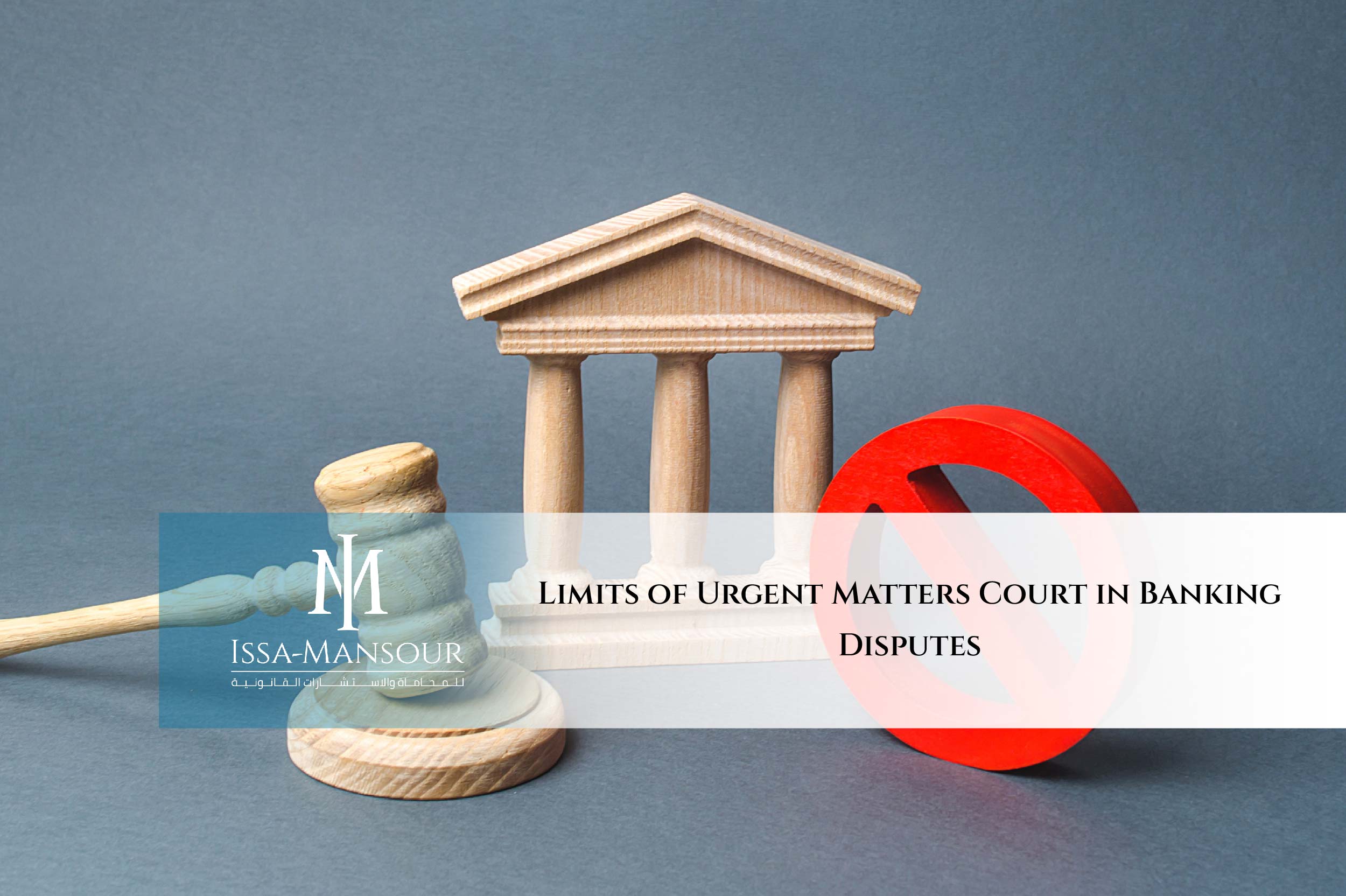In the wake of Lebanon’s financial and economic collapse, many depositors have found their funds frozen in bank accounts. Desperate for solutions, some turned to the Judge of Urgent Matters (Juge des Référés), invoking Article 579 of the Lebanese Civil Code, which provides legal protection against infringements on individual rights and property. The hope was that this court could compel banks to release their deposits.
However, the jurisdiction of the Judge of Urgent Matters is limited. This court is empowered to address urgent matters, but it is not allowed to delve into the underlying legal complexities of a dispute. When legal issues such as contract terms, payment conditions, or the conversion of deposits into local currency arise, the case falls outside the scope of this court’s authority.
Banks have successfully defended themselves in these cases by raising legal points that require more in-depth consideration—points the Judge of Urgent Matters is not equipped to address. Consequently, many lawsuits have been dismissed due to the lack of jurisdiction.
In situations like these, it’s essential for depositors to be aware of the legal limitations and explore alternative solutions. At Issa Mansour Law Firm, we specialize in navigating these complexities and helping parties find amicable resolutions. Whether you need legal advice or guidance in resolving a banking dispute, our team is ready to assist.

